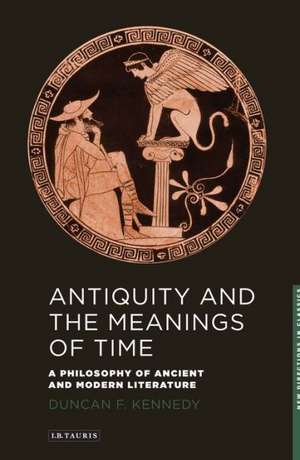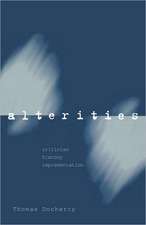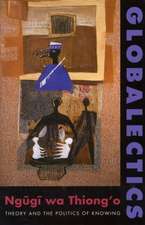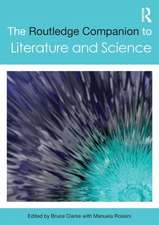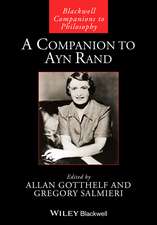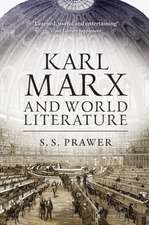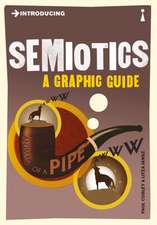Antiquity and the Meanings of Time: A Philosophy of Ancient and Modern Literature: New Directions in Classics, cartea 01
Autor Duncan F. Kennedyen Limba Engleză Hardback – 24 iul 2013
Preț: 759.19 lei
Preț vechi: 925.85 lei
-18% Nou
Puncte Express: 1139
Preț estimativ în valută:
145.29€ • 150.53$ • 121.25£
145.29€ • 150.53$ • 121.25£
Carte indisponibilă temporar
Doresc să fiu notificat când acest titlu va fi disponibil:
Se trimite...
Preluare comenzi: 021 569.72.76
Specificații
ISBN-13: 9781845118150
ISBN-10: 1845118154
Pagini: 272
Dimensiuni: 152 x 234 x 25 mm
Greutate: 0.57 kg
Editura: I. B. Tauris & Company
Seriile New Directions in Classics Series, New Directions in Classics
ISBN-10: 1845118154
Pagini: 272
Dimensiuni: 152 x 234 x 25 mm
Greutate: 0.57 kg
Editura: I. B. Tauris & Company
Seriile New Directions in Classics Series, New Directions in Classics
Notă biografică
Duncan F. Kennedy is Professor Emeritus of Latin Literature and the Theory of Criticism in the Department of Classics and Ancient History at Bristol University. In addition, he is the co-editor, with Charles Martindale of the 'New Directions in Classics' series published by I.B. Tauris. His previous books include 'The Arts of Love: Five Studies in the Discourse of Roman Love Elegy' (1993) and 'Rethinking Reality: Lucretius and the Textualisation of Nature' (2002)
Recenzii
'Smart, wide ranging, fascinating and well written.' Simon Goldhill, Professor in Greek Literature and Culture, University of Cambridge 'What distinguishes Duncan Kennedy's approach to the subject of time in antiquity is his focus on how conceptions of time are constituted in and by narrative. Where many scholars might use works like the Confessions, the Aeneid, Oedipus the King, Lucretius' On the Nature of Things, or Livy's History as fragments allowing us to look backwards and recover the different thought worlds of Greece and Rome, Kennedy's dazzlingly precise readings treat them as integral manifestations of time's workings. And his lucid analyses look emphatically forward to place these works not so much behind as alongside those of Barthes, Amis, Borges and Heidegger in investigating how texts shape the way we think about divinity and empire, truth and free will. In equal measure challenging and absorbing, Kennedy's exploration of time and narrative offers an exemplary demonstration, for classicists as well as non-classicists, of how Greek and Latin literature can enrich thought about ideas vital to contemporary experience.' Andrew Feldherr, Professor of Classics, Princeton University
Cuprins
Preface 1. Does Augustine Put His Finger on Time? 2. Time for History 3. Determination 4. Self-Determination 5.Time, Knowledge and Truth Notes Bibliography Index
